Virtual private networks (VPNs) hide your IP address and encrypt your web traffic. They are primarily used to protect your online privacy, browse securely on public WiFi networks, and access geo-restricted video content.

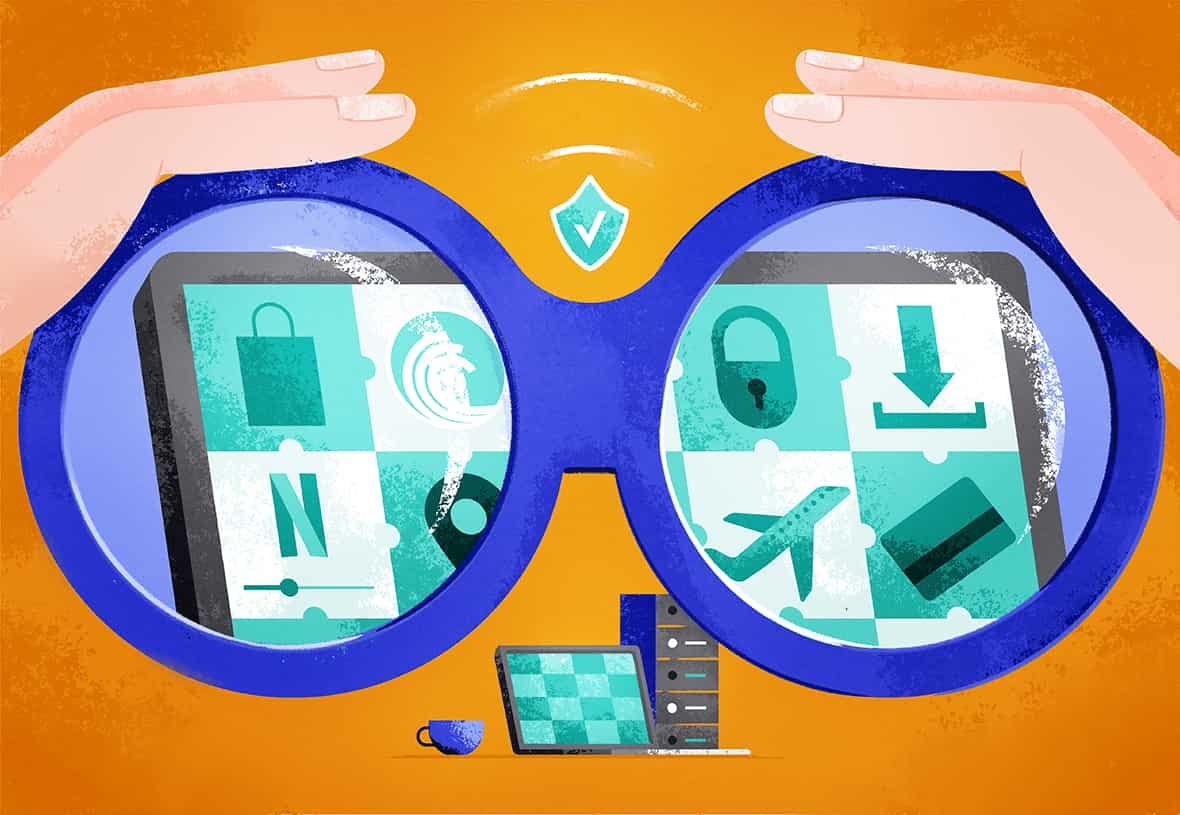
People around the world use Virtual private networks (VPNs) for a variety of reasons and purposes.
Almost a third of internet users worldwide use a VPN to secure their internet activity. This includes web browsing, torrenting files, and online shopping.
Based on our VPN usage research, over 50% of all VPN users use a VPN to protect their personal data transfers on public WiFi networks.
Many users also want to browse the web anonymously, and at least a third use a VPN to access video content and websites blocked in their region.
In this guide, we’ll explain exactly what VPNs do and why people use them.
In the chart below, you can see the most common reasons people give for using a VPN:
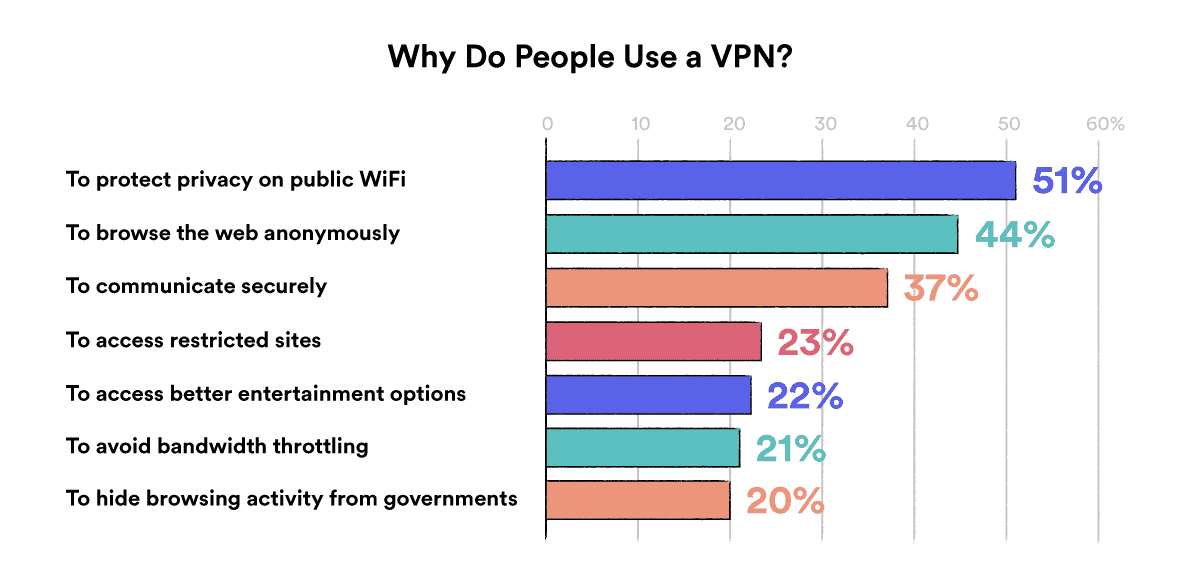
The statistics above relate to the use of personal VPNs. However, keep in mind that there are various types of VPNs available, including remote access and business VPNs.
A VPN serves two main purposes: hiding your IP address and encrypting your web browsing data.
These two functions can open up a world of possibilities for improving your privacy, security, and freedom on the internet.
If you want to learn about the technical aspects of VPN software, read our explanation of how a VPN works.
Without a VPN, your Internet Service Provider (ISP) can see all of the websites you visit and will almost certainly be recording that information.
In some countries, ISPs are required by law to collect and store your browsing data for long periods of time.
Governments can then access this information whenever they like. This is the case in the US, UK, Australia, and much of Europe.
Often, these countries are also members of international agreements like the Five Eyes Alliance, which are designed to collect mass surveillance data and share it among themselves.
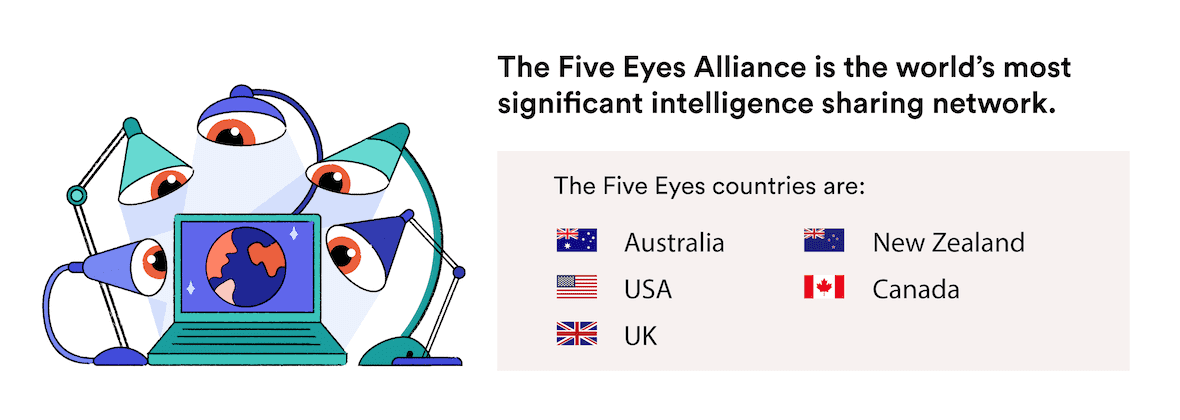
A VPN hides your web traffic by encrypting your data from your device to a private server. This makes it much harder for websites, governments, and ISPs to spy on your online activity.
Even if someone does get their hands on your browsing data, the information they collect will be almost impossible to decode.
A VPN also changes your IP address and replaces it with an IP address belonging to the VPN server.
This means the websites you visit will see the VPN server’s IP address and will therefore find it much harder to identify you. It also prevents other potentially dangerous things that people can do with your IP address.
Streaming services like Netflix and Amazon Prime Video have different content libraries depending on your location.
In other words, the movies and TV shows you’re able to watch will depend on the country you’re connecting from.
That’s where a VPN comes in, allowing you to change your geolocation and unblock geo-restricted videos.
Streaming websites use your IP address to determine your physical location. A VPN masks your personal IP address and replaces it with an IP address in a country of your choice.
Therefore, you can ‘trick’ streaming websites into giving you access to thousands of TV shows that are blocked in your country.
Some VPN services even have dedicated servers for each streaming platform.
If you connect to a VPN server in the US, for example, you’ll be able to access the US Netflix library, which has many more movies and TV shows than any other country.
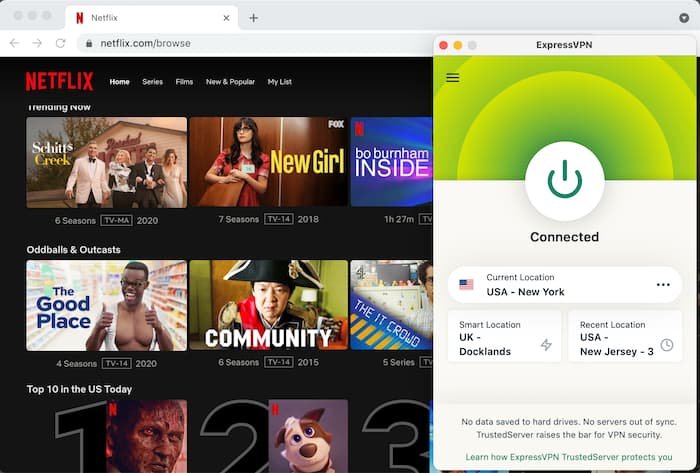
Finding a VPN that unblocks many streaming platforms can be difficult. Luckily, our list of the best streaming VPNs is a great starting point to find VPNs that easily bypass streaming geo-restrictions.
Exploiting public WiFi networks to gather data is simple and incredibly cheap. Criminals can take advantage of open and unencrypted networks to steal important data like your bank details, credit cards, photos, and other personal information.
When you use the public WiFi connection in a café, hotel, or airport you are putting your sensitive personal data at risk.
Hackers are increasingly targeting hotels and shopping malls in pursuit of high-value targets. This is made easier with cheap equipment that gives almost anyone the ability to take advantage of public WiFi networks for under $99.00.
A VPN can be used to protect yourself from this kind of threat. It will encrypt your internet traffic and make it almost impossible for hackers to understand and exploit your data. It will also stop the owner of the WiFi network from monitoring your activity.
For this reason, a VPN is an invaluable tool if you travel frequently and regularly use open WiFi networks. ExpressVPN is the best VPN for free WiFi hotspots because it has strong encryption, a private logging policy, and its easy to use.
Unprotected networks at home are also a risk. As remote work becomes more common, criminals are turning their attention towards vulnerable home networks – a practice known as wardriving.
If you’re concerned about your security on public networks, read our guide to staying safe on public WiFi.
Authoritarian governments around the world choose to block certain websites in order to limit their citizens’ access to information.
Our latest research shows that this kind of intentional “internet shutdown” cost the world economy up to $4B in 2020 alone.
China, for example, uses its infamous “Great Firewall” to prevent people from accessing popular websites like Google, Facebook, and YouTube. You can find out exactly which websites are blocked using our China Firewall test.
During times of political turmoil, other countries like Algeria, India, and Chad have also blocked access to social media and messaging apps like WhatsApp and Twitter.
Citizens (and tourists) in countries affected by internet censorship can use a VPN to bypass website restrictions and access the global internet.
That’s because a VPN encrypts your traffic and masks your IP address, hiding your identity and activity from internet censors.
Some VPN services also offer obfuscation technology, which helps evade more sophisticated systems of censorship. Obfuscation disguises your VPN traffic, making it appear like normal browsing data.
If you’re interested in VPNs that can effectively bypass censorship, read our list of the best VPNs by category.
For journalists, activists, and whistleblowers, VPNs are a vital resource for safely speaking out against governments that limit freedom of speech and freedom of the press.
For everyday people living under censorship, VPNs can also be an essential way to access information and services that are otherwise blocked.
Torrenting files with software like uTorrent or BitTorrent can be risky. Your IP address is visible to other peers in the swarm, and your Internet Service Provider can see all of the files you’re seeding and downloading.
Without a VPN, your IP address – and therefore your identity – is visible to other users, content owners, and copyright trolls. Your ISP can also identify your activity and work with authorities to issue legal notices for copyright infringement.
In most countries, users found downloading copyrighted material can face fines or even imprisonment.
Powerful media companies also monitor P2P traffic to collect the IP addresses of torrenters. They then pay law companies called ‘copyright trolls’ to find and prosecute any users they can find.
We don’t condone downloading copyrighted material, but if you’re torrenting legal files then a VPN is vital to encrypt your P2P activity and keep it safe from prying eyes.
Some VPN services are tailored to torrenting more than others, though – you can find an updated list of VPNs for torrenting here.
We’ve explained that your ISP almost certainly monitors your online activity.
If you live in a country without strong net neutrality laws, your ISP can also deliberately slow down your internet connection. This is called bandwidth throttling.
ISPs usually choose to throttle your internet connection when you perform bandwidth-heavy activities like downloading large files, streaming, or torrenting.
Bandwidth throttling is typically used to minimize network congestion and help regulate traffic at busy times. However, some ISPs have also been accused of throttling connection speeds purely for their own business interests.
VPN encryption can stop ISPs from throttling your connection because it prevents them from seeing what you’re doing.
In fact, installing a VPN is the best way to stop internet throttling by your ISP.
Without access to your internet activity, it’s much harder for your ISP to know when to slow down your connection. This means you can enjoy faster and more reliable speeds for downloading files, gaming, and streaming.
E-Commerce websites like travel agencies, car rental companies, and airlines often use your IP address to determine your location. Once they know where you are, they can change their fares accordingly.
For example, the booking cost of a flight for a customer in the US may be higher than the price of the same flight when booking in India.
It’s also common for this type of website to use cookies and tracking scripts to target you with specific advertisements.
Companies then use this type of tracking information to manipulate the price of the products they advertise. The more interested a potential customer seems in a product, the higher they hike the price.
You can use a VPN to avoid this kind of targeting advertising and price manipulation.
By hiding your IP address and spoofing your location, you can ‘trick’ a website into offering you lower prices based on the country you’re buying from.
Aside from getting better prices, it’s also a good idea to use a VPN for safe online shopping.
Shopping transactions typically involve sensitive information like your name, address, and banking details, which VPN encryption can help protect.
VPN software comes in many forms. The first VPN protocol was called Point-to-Point Tunneling (PPTP), and it was designed to help people work effectively and securely from home.
VPNs are now used for much more than just remote working. However, some VPN services are still specifically designed to help you safely connect to a company’s internal network.
The type of VPN we refer to in this guide and our VPN reviews is called a ‘consumer VPN’. These services connect your device to a server that is owned by the VPN company, allowing you to browse the public internet with all of the benefits that we’ve mentioned above.
The type of VPN that your company might use for remote work is called a ‘business VPN’. These services connect authorized users to a shared server in a certain location, usually an office or headquarters.
Business VPNs give employees secure access to applications and files that are only available on the office’s internal network.
The purpose of the VPN is to prevent sensitive business data from being sent unprotected over the ‘open’ web.
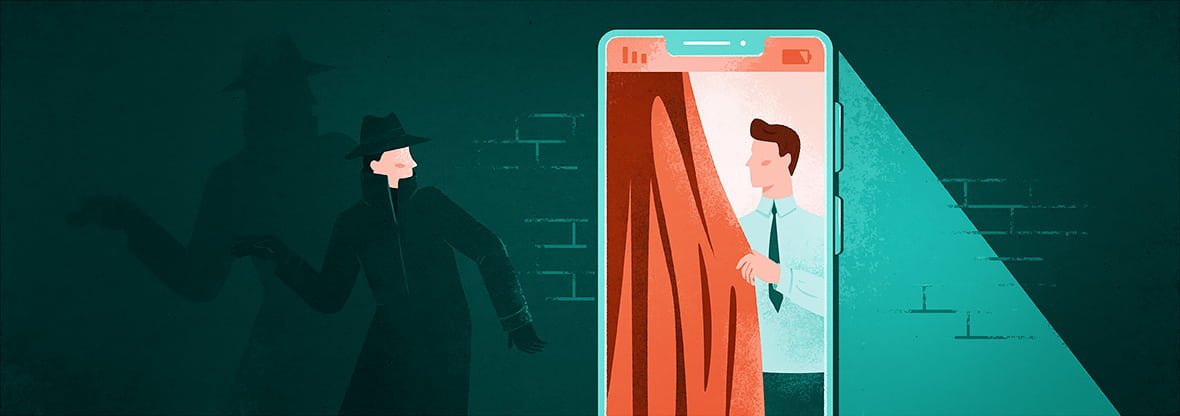
Using a VPN makes your online activity much more private than using the internet without one. However, a VPN doesn’t make you completely anonymous.
Encrypting your data and hiding your IP address is a great start, but your IP address is just one way you can be identified online.
A VPN doesn’t protect you from: